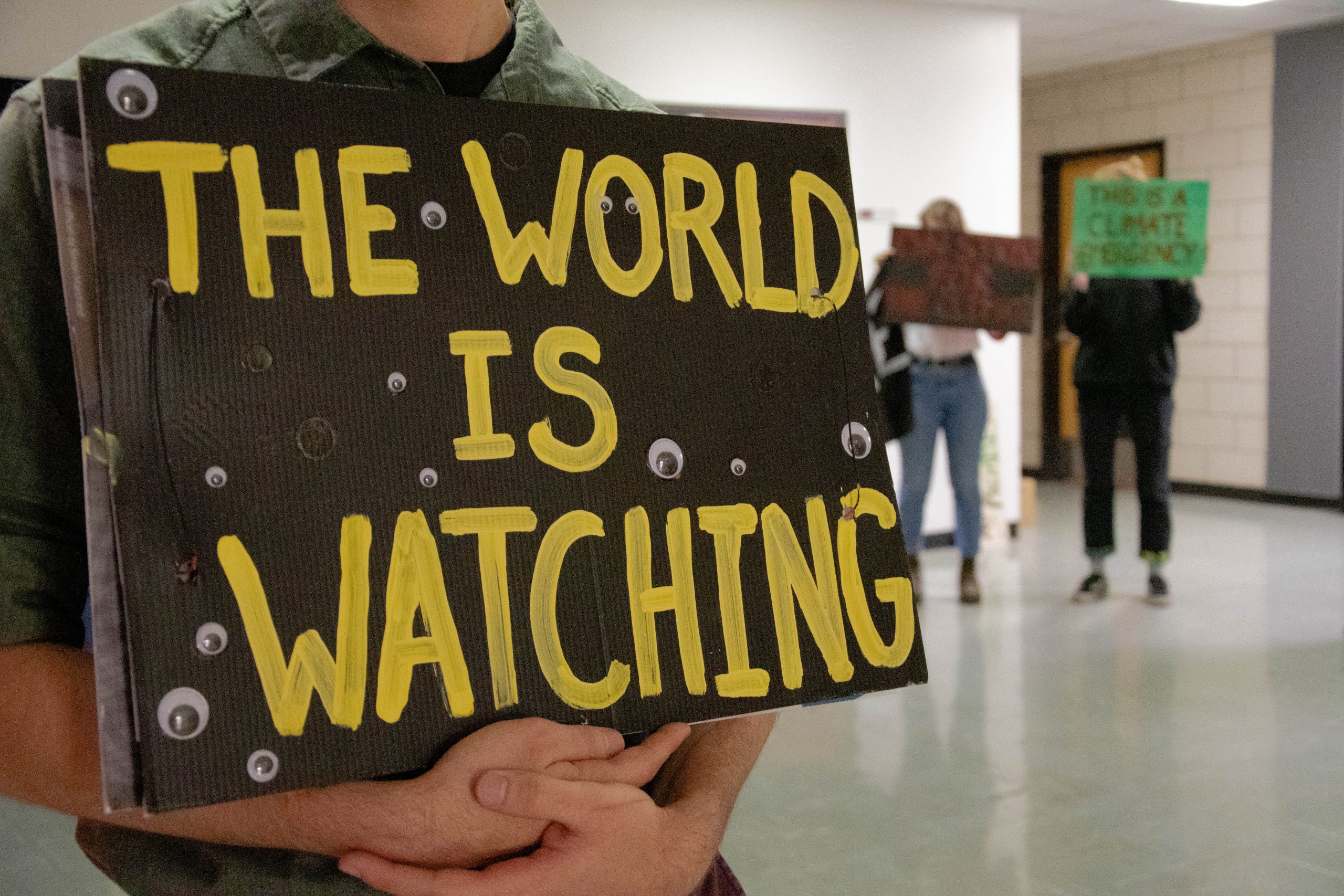According to protesters, Concordia would be able to divest faster than their target five-year plan.
“What do we want? Divestment! When do we want it? Now!” chanted students from the Geography Undergrad Student Society (GUSS) on Friday during a strike.
The 25 students who gathered at the Henry F. Hall building’s ninth floor were urging the university to divest faster than their previously announced five-year plan.
The Concordia University Foundation sent a press release in November presenting its divestment plan in all of its investments from the coal, oil and gas sectors before 2025, reported The Concordian.
“We want to make sure that Concordia is held accountable in this divestment protest, so making it as fast as possible and have real binding agreements, because historically, they had been kind of lax,” said a student who wished to remain anonymous for privacy purposes with the university. Other striking students asked to remain anonymous and not have their faces shown on camera for the same reasons
In 2016, the university had already established a joint sustainable investment advisory committee to “make recommendations to their respective governing bodies on socially and environmentally responsible investment opportunities” reported Concordia News. The committee included representatives from the student body like the Concordia Student Union, the Graduate Student Association and Divest Concordia.
“The Concordia University Foundation publishes an annual report which includes audited financial statements,” wrote Concordia’s spokesperson Vannina Maestracci in an email to The Concordian. “The Foundation will continue to provide these annual reports which serve to assess its investments.”
The students were handing out pamphlets with their demands that the university be held accountable for divestment at the fastest rate possible through a student-faculty body that oversees divestment, by implementing binding agreements and and that the measures taken would be communicated to students with full transparency.
The protesters claim that Concordia would be able to divest way faster than the planned rate and that a lot of information regarding the process is not publicly shared.
“We believe that five years is the time it will take to replace our remaining exposure to coal, oil and gas,” wrote Concordia’s spokesperson. “If we can do it sooner, all the better. For us, it’s not simply about withdrawing investments from coal, oil and gas. It is also about finding the new investments that are sustainable and benefit our community in terms of research, teaching and charitable programs.”
Students are also demanding that Concordia declares climate emergency in which they would implement more binding language. However, Concordia has already done that last September.
“We signed a climate emergency declaration with nine other Quebec universities by which we committed to more sustainability education and research, and carbon neutrality by 2050 at the latest,” wrote Concordia’s spokesperson.
The strike had been previously voted upon unanimously by the GUSS during a general assembly.
“In geography, there’s a desire for climate action in our education and sort of what the professors are learning and researching on,” said the student.
Although no other events have been planned yet, the geography student body said it is not willing to back away until Concordia takes serious action.
Photo by Jad Abukasm
